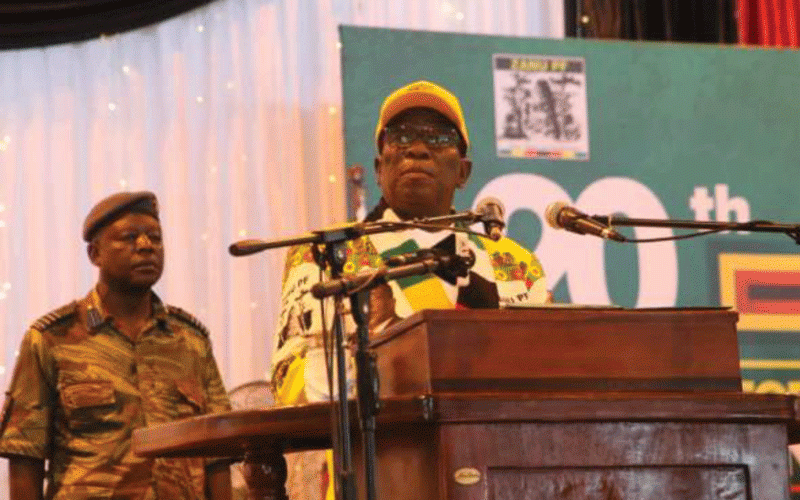
LOCAL authorities are the engine rooms of development. They are the closest and immediately responsible to the average citizen in terms of basic service provision.
Their failure can be easily noticed, but in Zimbabwe they need space to operate without central government interference.
The opposition has controlled the majority of the 33 urban local authorities and all the cities since 2000.
This has created a schism in our national politics, where Zanu PF has a new moniker — rural party. Zimbabwe is divided into two, urban and rural.
These divisions are based on a number of historical factors such as the liberation struggle and the economic developments during the colonial rule.
Successive Zanu PF governments have not taken kindly to being called a rural party. They have thrown spanners into the works of urban local authorities.
The central government either delays in approving local authorities’ budgets or persecute mayors for flimsy reasons.
This is calculated to make the opposition leaders look like a bunch of failures.
- Mbavara eyes to resurrect Matavire’s music legacy
- Zim exiles panic over SA permits
- Zim exiles panic over SA permits
- Social media platforms should act on hate speech
Keep Reading
This is in no way to absolve the opposition of any blame.
Opposition-led councils have also created their own mess such as councillors being accused of corruption and failing to have the financial books of the cities and towns audited.
In the event that they are audited, the majority of the audit reports are qualified, adverse or the auditor can’t offer an opinion.
These are matters the local authorities have to address.
They have to provide services to ratepayers. This cannot be emphasised enough.
Early this week, President Emmerson Mnangagwa held an interface with all local authorities' leaders in the capital. At the meeting, Mnangagwa emphasised that his government will not hesitate to wield the axe on non-performing councils. This warning cannot be taken lightly from experience.
Zanu PF, by hook or crook, is still trying to control urban areas. There are many reasons why they would like to.
Among the reasons, Harare and Bulawayo between them control 35% of the national GDP. In simple terms, they are the hubs of economic development.
The likelihood is high that commissions will be used to run the cities and towns at the slightest mistakes by the councils.
It is also the same week when Harare released its 2024 budget that still has to be approved by the Local Government minister.
The budget has lots of capital expenditure that will depend on central government, private sector and ratepayers support.
Harare also highlighted that it was only getting 47% of targeted revenue.
This means 53% of the city operations are funded on a combination of debt, government grants and donors. This is unhealthy for the capital city.
Harare further said it had issues with a high wage bill. It means the city has to restructure and rationalise its human resources. This is a tall order considering that nearly 50% of all workers are employed on political basis.
How can this be resolved? Devolution and giving executive powers to elected representatives (mayors) can solve the question. It will give elected councils power and responsibility.
It should be noted that devolution is embraced in Zimbabwe’s Constitution.
However, for the past decade since the inception of the supreme law an enabling Act has not been enacted.
However, it is important to note that Mnangagwa while opening the 10th Parliament proposed that a Devolution Bill will be tabled in the House.
It is important that the Bill should be given priority. Examples of local government being semi-autonomous of central government are readily available.
This is seen in South Africa, the United Kingdom and the United States. Parties should fall or rise on their leadership.
It is important that local authorities and central government should cooperate. This is lacking at the moment. Central government has to release funds to council on time.
Councils have to use the funds as stated in their budgets. The central government should also be responsible enough to pay rates to councils.
In Harare’s case, the central government is among the biggest debtors to the council.
The Devolution Bill should also address the process of recruiting and firing of senior council executives. The Local Government Board doing the job now has overstayed its welcome.
Councils should exclusively deal with this. Councils should be able to assemble their executive teams without interference from the central government.
Central government should, however, retain the power suspend councils in cases of gross maladministration, corruption or financial mismanagement.
This creates a win-win situation. Zimbabwe needs that and it needs it like yesterday.
One more thing, the local mirrors the national. It would be unfair to expect local authorities to perform miracles when the national government is failing.
The national government has the sole responsibility on national defence, national economy through both the fiscal and monetary policies.
It also has the exclusive domain in investment laws.
In other words, central government has to create a conducive environment for investment, provide incentives for investment, control inflation and have a monetary policy that attracts investment.
These are things outside the purview of local authorities.
The issues raised here are not exhaustive, but can give a good starting point in redrawing the boundaries between central and local governments.
The sooner these changes are implemented, the better.
It has been proven that devolved States on average are more successful than centralised States.
Local governments are close and more responsive to residents or their communities.
Devolution can be our panacea to development. It should be implemented immediately.
It also helps in that there would be no shifting of blame for failure to lead and develop communities between councils and central government.
There it is Zimbabweans, the choice is ours.
Paidamoyo Muzulu is a journalist based in Harare. He writes here in his personal capacity.







